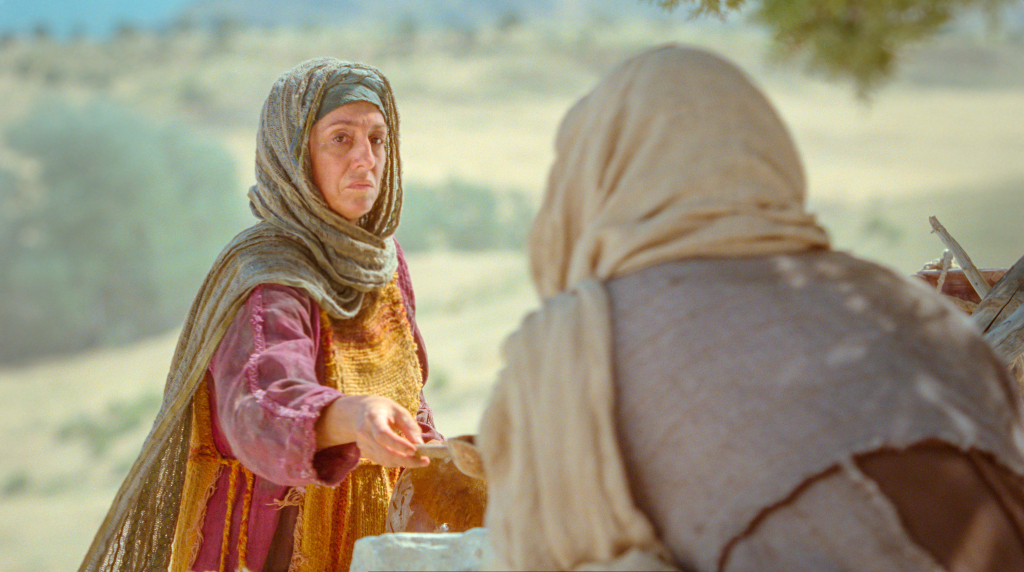Our Church was founded in times of isolation and mistrust
Posted: Thu, 14 May 2020 13:03
A reflection on the Gospel for the Sixth Sunday of Easter by Fr Gerry O'Shaughnessy SDB. Image: Church of Jesus Christ Media Library
Now when the apostles at Jerusalem heard that Samaria had accepted the word of God, they sent Peter and John to them. The two went down and prayed for them that they might receive the Holy Spirit (for as yet the Spirit had not come upon any of them; they had only been baptized in the name of the Lord Jesus). Then Peter and John laid their hands on them, and they received the Holy Spirit. ( Acts 8: 14-17)
In our first reading today we meet Philip on his missionary journey to Samaria-that region nestled between Galilee in the north and the southern Judea. After the great Babylonian Exile, the Samaritans returning home found that their religious practice and theology now differed greatly to their Jewish neighbours. As a result enmity and distrust grew up between them. By the time of Jesus we see that bitterness was open and obvious. In his effort to preach an inclusive Gospel, even a Samaritan woman cannot reach beyond the stereotypes and discrimination. When he initiates conversation by asking for a simple cup of water, her reply reveals the divide that existed:
"You are a Jew and I am a Samaritan woman. How can you ask me for a drink?" (For Jews do not associate with Samaritans) (John 4: 9).
This simple request led to the dialogue on living water; water brings life and brings new life to the lady and her village. Just as the Mary of Magdela and the other women became the first disciples of Resurrection, so the Samaritan woman became the sharer of Good News:
Many of the Samaritans from that town believed in him because of the woman's testimony, "He told me everything I ever did." So when the Samaritans came to him, they urged him to stay with them, and he stayed two days. And because of his words many more became believers (John 4: 39-41)
Jesus probably caused even greater upset for the Jewish leadership when he made the hero of his parable not the 'Good Pharisee' or the 'Good Scribe' but the 'Good SAMARITAN.' In trying to illustrate the importance of Jewish Law as seen in Leviticus
"You shall not take vengeance nor bear any grudge against the children of your people, but you shall love your neighbour as yourself" ( Leviticus 19:18)
Inclusion is central to the mission of Jesus, now carried on by the early Church as they strive to be faithful to the Mission of the Risen Lord. One thing that strikes me is that the early Church was nothing but adaptable. In their new community outreach, these new Christians saw the need to be open to the demands of the new order. It was a community founded in isolation and quiet; those early disciples gathered with Mary can well identify with our present experience. As they moved forward they realised that they would have to move out of an exclusive Jewish world and bring WORD and EUCHARIST to the Samaritans and Gentiles. They had to think outside the box in their quest to share Jesus.
These last couple of months have forced us all into a new way of being a Eucharistic People. While we have been spectators at virtual masses that undoubtedly have helped to support our faith, we have not been nourished by the Bread of Life and the Cup of Eternal Salvation. We are experiencing a Eucharistic famine - or are we? In this pandemic era, we have seen acts of extraordinary kindness as we all strive to build up the community in these difficult times. As we work towards a new normal, we have already seen signs of wanting to move forward as we want to break free from the shackles. The challenge for the Church is to take to heart the dynamism of the early Church and to come out from our own 2020 isolation as a new and vibrant family of Faith. In the Gospel, Jesus gives us the obvious clue in our moving on: he invites us today to keep the commandments, just as he urged the young lawyer who asked:
...and who is my neighbour? (Luke 10: 29)
Today is an invitation to continue that pilgrimage from death to life and from darkness to light. The challenge of lockdown has brought so many good and life-enhancing experiences. Let us continue to pray for each other and make the promise today that we will be builders of faith and not destroyers. Today, in the domestic Church that is our home, each one of us can put today's Word into practice as we all LOVE one another in those simple, everyday moments. A Capuchin, Bro. Richard OFM captures this spirit in his recent poem, 'Lockdown':
Yes there is fear.
But there does not have to be hate.
Yes there is isolation.
But there does not have to be loneliness.
Yes there is panic buying.
But there does not have to be meanness.
Yes there is sickness.
But there does not have to be disease of the soul.
As we share this dynamism today and approach Pentecost, we look forward to rebirth and a chance of new life. As you enjoy this coming week, bask in the love of God for you alone:
But there can always be a rebirth of love.
Wake to the choices you make as to how to live now.
Today, breathe.
Listen, behind the factory noises of your panic
The birds are singing again
The sky is clearing,
Spring is coming,
And we are always encompassed by Love.
Open the windows of your soul
And though you may not be able
to touch across the empty square,
Sing
